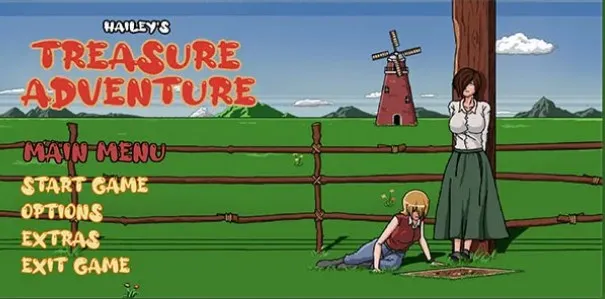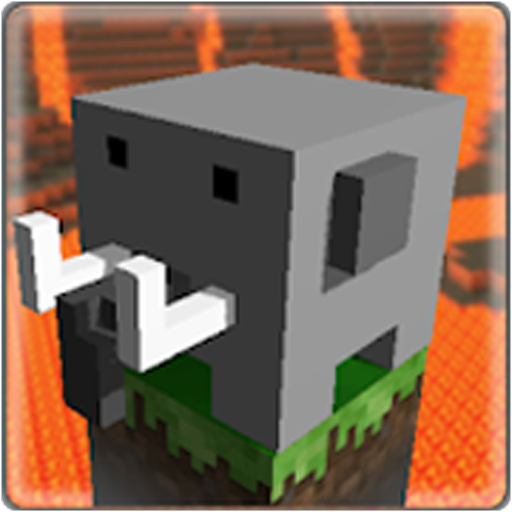Passionately shouting for charge, "The War of Embers" rekinds my youthful passion for MMO
Twenty years later, return to the battlefield
The story will start from a few days ago. While I was wandering around searching on Steam, I accidentally saw an overseas game called "Ageless War" that started a comrade assembly activity. Before the game was officially launched, I could create a battle group and gather comrades in advance - some old faces also appeared in this event. "Ark: Survival Evolution" official server Zero League of the World's No. 1 Guild, the founder of the early well-known guild in World of Warcraft, and ABig Banana... These familiar names surprised and kind to me, and also rekindled my expectations for large-scale battlefields and guild confrontations.
Damn it, the guild war? To be honest, it’s already a little excited!
Many years ago, when I was young, I knew Baosu every night, and then pulled my own fixed team: warriors, priests, and commanders, galloping in various MMO games, attacking sand all night, shouting passionately, fires splashing in the screen, and commanding and roaring in my ears... Youth seems to be compressed into these game scenes.
I thought those passionate nights would never come back, but recently, the emergence of this new MMO game released and operated overseas made me feel like I was suddenly pulled back to that passionate era.
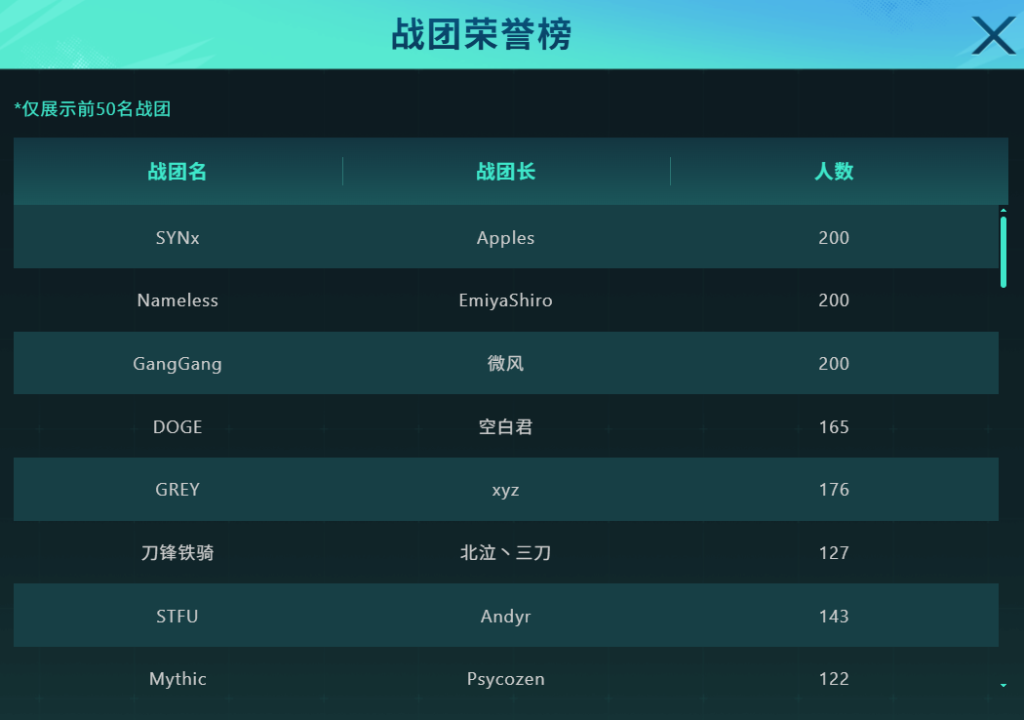
The guild assembly number rings again
I have played games for many years. To say a number specifically, it may be a bit vague, but according to the time when "Legend" was popular in China, more than 20 years are at least - from "Legend" to "Paradise 2", from "Stone Age" to "Legend of Wonderland", and finally, I spent more than ten years in "World of Warcraft" for more than ten years. It is not an exaggeration to say that it is pickled into the taste of MMO games.
As an old player who has come from the MMO era (yes, please let me call the PC game environment around the Millennium so), I was really moved when I saw so many guilds joining in the fun in "Ashes War" - this scene hasn't been seen in years.
For the new generation of players, "guilds" may be a somewhat unfamiliar concept - but for any player who has emerged from the golden age of MMO games, "guilds" are actually part of the game, and are also a gathering of comrades, friends, and family.
Then...What exactly is a guild?
If you want to define "guild", "If you die, someone will save him, and if you fight, someone will help him" is a simple and clear explanation. Of course, for the domestic MMO game guild ecosystem that has lasted for more than 20 years, this rough prophecy from the "Crusader" seems to be unable to summarize the entire era.
The original prototype of the guild in China was born in the MUD game "The Smiling and Proud Wanderer". The first player guild in the history of Chinese online games, the first player guild, "Crusader", played the slogan "If you die, someone will save him, if you fight, someone will help him" in the game, and recommended "Five Mountain Old Cats" as the leader of the guild. Subsequently, the "Crusader" was reorganized into the "Cyber Crusader" and established the "Nation of Heaven" in the first graphic display of the country. At this point, the era of the MMO Guild has arrived.

The "Internet Crusader" proposed the concept of "guild-oriented, not game-oriented", so that guilds are no longer bound to a single game. "Cold Wind" has established the first discussion version of the "Heavenly Home Page" with guild players as the core, and later it was renamed "Online Game World", which is the predecessor of the well-known online game media website 17173.
It is also from here that the guild begins to deviate from the concept of family and moves towards systematization from the player's spontaneous behavior. But at the same time, the disadvantages of systematization have begun to appear in the past twenty years of MMO development - at the beginning, guilds were born because of games, and they prospered with the purity of the game; then, the new generation of games began to rely on guilds, and simple games became no longer simple; in the end, the new generation of players began to not understand guilds, and the new generation of games no longer had the survival soil for guilds...
The world is changing, the game is changing, and the players are also changing.
So, it is always a bit exciting when "The War of Embers" wants to pick up some past memories.
To be honest, this made me a little dazed. What exactly could bring such a group of people together? Or... what year was this evening?
This made me suddenly recall some memories from twenty years ago - you know, the warriors and priests were old, but the memories were still shining. How long has it been since we contacted? Some of them can't remember clearly, it should be a long time, so long that I even blurred their names.
You see, time, work, family, and life are all oxidants that react to games.
When the stars shine
I remember that moment.
I walked into a smoky Internet cafe, charged 10 yuan, and sat down�, log in to your account. Then someone stood up and said something, I can't remember it. All I knew was that I was a warrior, standing on Shabak's floor. The boss of the guild (yes, it wasn't called a guild at that time) began to command. The promise of "two monthly cards for each person" made people crazy. "Collection", "Sand Dog", "Holding Group", "Don't Fault in the Mode", "Spreading the Firewall", "Don't Sanda", and "Entering the Palace", began to appear frequently in the next two hours.
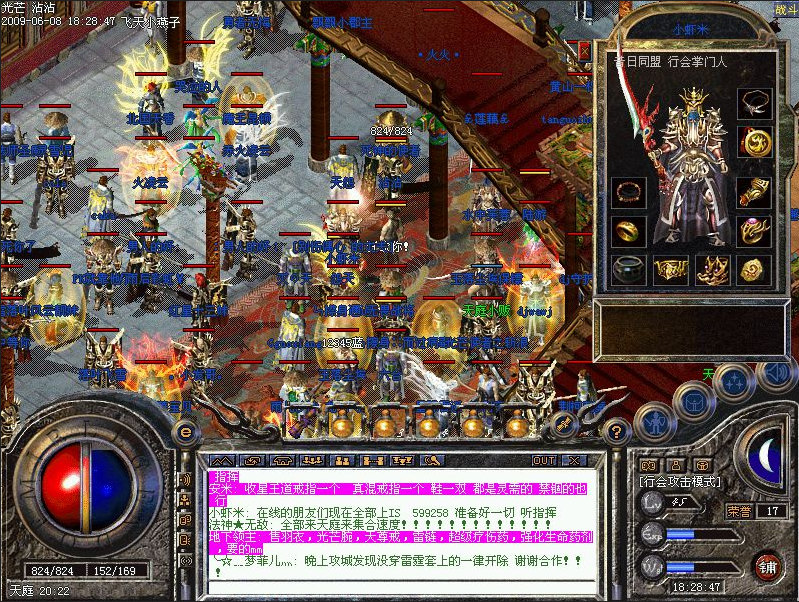
Thunder kept ringing in his ears, the sword lights and flames flashed on the monitor screen were never interrupted, the medicine in the warehouse was gradually consumed, the number of enemies was not reduced, and the equipment was everywhere on the ground - both sides were making all their efforts for their goals, time and time again, the crowds continued to collide and disappear, the warriors charged, Taoist assistants, and mages ranged, supporting each other in the melee, until the enemy in front of them fell, until the final winner stood in the palace, until Shabak changed hands.
I remember the failure that night, the efforts of countless nights afterwards, and the moment of final victory - the guild boss sent two monthly cards to everyone involved in the attack on the sand, a "kitchen knife", which included everyone's medicine and losses.
After getting off the machine, the soul seemed to be pulled out of the body - I know that some things will leave an indelible mark on me.
While "Legend" is popular in China for attacking sand, some legends belonging to guilds are also being born - the eternal Shabak City Lord "Little Xiami", the Palace Lord of the God of War Palace "Soul 15", the "Prince Dan" who slays the dragon, and the 8L who don't use your salary to challenge my pocket money... These powerful guilds have also revitalized the player ecosystem of the entire server, and their existence itself is the best advertisement for the game. To this day, these legendary characters and guilds are still talked about by every "legendary" player.
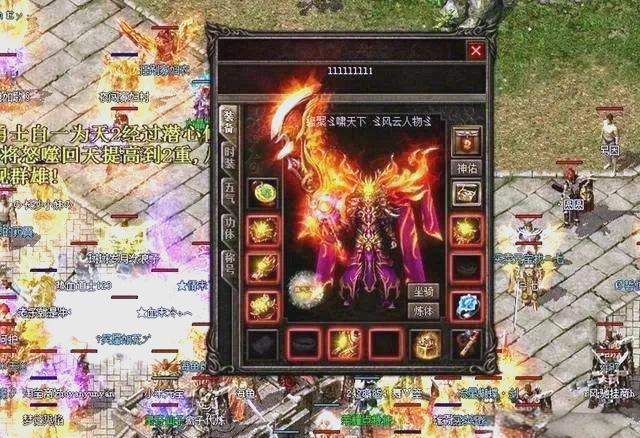
At the same time, as the guild's position in MMO games continues to develop, MMO games have also begun to serve guilds at the basic design level. It was also during this period that a large number of Korean online games led by "Legend" began to become popular in the domestic market and provided a soil for domestic guild development.
Typical examples are "Legend of Wonderland" and "Paradise 2".
At that time, home computers were not yet popular, and Internet cafes were the main gaming venues for most MMOs. Players not only had to pay online fees, but also had to pay point card fees for the game - so game time naturally became a valuable resource. If you rely on the guild, you can get the protection of the guild, that is, "if you die, someone saves you, someone helps you when you fight", and you can also have priority use of some resources. The concept of "If you play MMO, you have to add guilds" has also begun to be popularized to the public players at this time.
The Legend of Wonderland and Paradise 2 both have systems tailor-made for the guild. Taking "Paradise 2" as an example, the siege battle that was promoted in "Paradise" was further strengthened in "Paradise 2". The "Blood Alliance" (guild) with a level 4 or above can obtain the authority to manage the castle and taxes after occupying the "castle". The guild can not only charge transaction taxes for NPCs in the town, but also buy exclusive props in the castle.
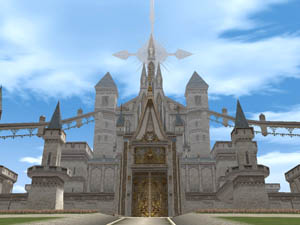
A Ding City in "Paradise 2"
Therefore, in order to compete for limited resource use rights, major guilds have teamed up all night to book major MMO games, which has become the norm. Various forms of "sand attack" have become an indispensable part of MMO games.
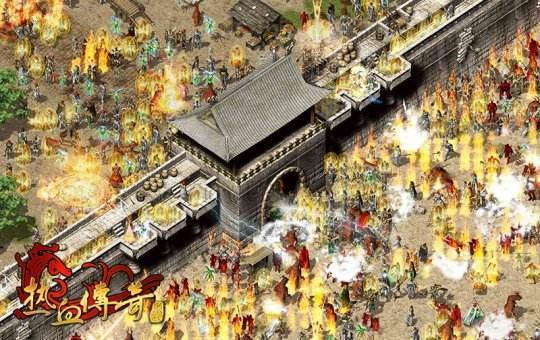
But behind the influx of Korean MMOs, the problems are gradually exposed: the simple and crude numerical competition of "attacking the sand", the single gameplay, and the serious game experience of PAY TO WIN are gradually eroding the patience of guilds and players - you should know that in the early "Legend", just one "Dragon Slaying Sword" could sweep the low-level guilds alone, and the gap in combat power cannot be compensated by tactics, resulting in the game forming a strange ecology of "equipment is power".
At this moment, the growing MMO Game Guild is waiting for the opportunity and ready to go.
Golden Age
On March 21, 2005, the Ninth City launched the limited edition test of World of Warcraft.
On June 6, 2005, World of Warcraft officially started its operation in mainland China - at this point, an era of WOW has arrived.

At that time, World of Warcraft almost squeezed the living space of all MMO games, and the excellent game quality was almost enough.�� is a dimensionality reduction strike to the MMO game market.
The overall guild ecology has also changed its form with the almost aggressive expansion of World of Warcraft. If in the era of Korean MMOs, guild battles are the two sides who pile up manpower and numbers, and then they will fight head-on, then World of Warcraft will systematically and standardize the confrontation and competition between guilds.

First of all, it is the mature copy RAID. This gameplay design, born from "Endless Mission", was taken away by "World of Warcraft" and eventually became what we are familiar with now - it is extremely challenging and requires high enough cooperation among players and able to provide corresponding rewards.
Secondly, "World of Warcraft" has enabled the camp confrontation design of "Horde" vs. "Alliance", and through the design of cross-server battlefields, it greatly increases the richness of PVP gameplay.
Under the dual role of PVE and PVP, countless guilds that left their names in later generations began to emerge and even directly created history - of course, this was destined to be a certain necessity, an objective law and overall trend driven by internal fundamental contradictions.
Because, in the design logic of World of Warcraft, guilds are an indispensable part - the existence of 40-person dungeons naturally puts forward requirements for the existence of guilds, and the lack of game experience for lone wolf players is inevitable. The guild itself also obtained the soil for thriving through the exquisite design of "World of Warcraft" - dungeons, battlefields, factions, first kills (First Down)... There is a guild everywhere.
A few years later, if someone turns back to write a chronicle of World of Warcraft, the mutual achievements between the guild and the game will definitely occupy the largest area - stories of countless legends, who would not like it?
And "Seventh Paradise" is the guild that must be mentioned in this long legend. At that time, when various guilds in the national server of World of Warcraft were fighting, "Seventh Paradise" relied on the glory of the world's first killing of full skill Haka, and directly held the throne of the first guild of the national server, and also won the first kill of the national server of the three leaders of Kelthas, Vasqi and Illidan.
The one that competed with "Seventh Heaven" during the TBC period was the "Star" Guild. On April 1, 2008, the last 25-person RAID copy of "The Burning Expedition" of World of Warcraft, "The Well of the Sun" opened. As an old rival, the "Seventh Paradise" and "Stars" immediately began to clear the land, trying to compete for FD. After a long period of opening up and opening the door, "Star" proved itself in the world's only unweaked feat of killing Mulu, while "Seventh Heaven" counterattacked and killed the Sun Well in the early morning of June 2, 2008 under multiple pressures, and finally BOSS Kiljadan, winning the first kill of the national server (the tenth in the world).
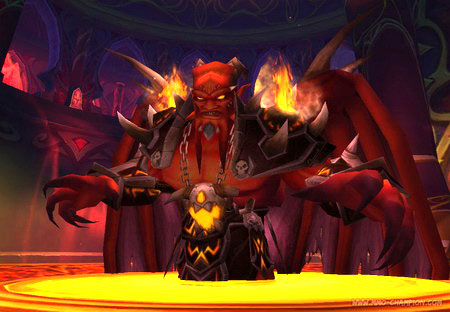
Along with the vigorous FD battle, the scale and professionalization of the MMO game guild are also gradually taking shape. "Seventh Paradise" even received capital injection and officially moved towards professionalization. After professionalization, "Seventh Heaven" made profits through the G Group to maintain its own elite route - although the "Egg Knife Gate Incident" eventually led to the dissolution of the guild.
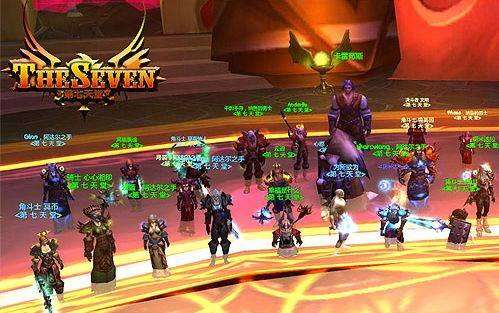
But the wave of the times is unstoppable. Large-scale and highly organized guild PVE and PVP have gradually become the mainstream gameplay of MMO games in this period. The art of victory made by discipline, resources, and flesh and blood have also made countless players devote their youth and passion to it.
While "World of Warcraft" was popular all over the country, many domestic MMO games have also referenced World of Warcraft and carried out various forms of localization innovation, especially opening up a unique path in guild confrontation gameplay.
Taking the "Cement Offense and Defense" of "Sword Net 3" as an example: In the early days, "Sword Net 3" did not have a fixed offense and defense battle. Until the player spontaneously organized a "sneak attack on Lao Xie" incident, the offense and defense battle of the evil people, which lasted for five days and five nights, became the prototype of the "big and big offense and defense" gameplay, shaping a gang culture and confrontation ecology with great local characteristics.
Abstract, this is a golden age of MMO games. Players are full of vitality and guilds compete with each other. It seems that everything is the best - and the only problem is that people will change, and games will change too.
A brief period of pain
The MMO game in the old era was too deeply bound to the guild - for young people with a full family, this is not a big problem. It is common for those who want to call for a meeting at what time to gather. But when young people with leisure become middle-aged, the ubiquitous time kidnapping and group activities are organized intoProblems such as excessive heights and the change of slideshows of the Hundred People's War cannot be ignored.
So, the game has also changed - the mobile Internet era has come unexpectedly, facing middle-aged players and a more emphasis on relaxed and leisure environment, a very new MMO game was born. In most contexts, I would call these MMO games the "pain period" of the mobile Internet era.
In the past, for a FD, players could sit in front of the computer for dozens or hundreds of hours, and face difficulties with hundreds of people in the guild. But now, with the popularity of mobile Internet, casual and fragmented game modes have gradually become the mainstream - various super casual games have begun to occupy players' time, and it seems impossible to sit for dozens or hundreds of hours of game experience.
MMO games naturally cannot develop against the trend. Therefore, we can see that in recent years, MMO games have begun to become mobile, popular and convenient -
Daily tasks? Complete one-click assembly line, and you are afraid that you will find it troublesome.
Combat techniques? No need, the game will try to ensure that everyone's operational level is on the same starting line.
High-difficulty RAID? In order to avoid the excessive cost of forced socialization and organization, it has been simplified.
Large PVP? If it doesn't exist, just play your own.
But at the same time, the game is increasingly lacking the original pure fighting fun and pleasure.
To be honest, is this the fault of the MMO game? I don't know. There is no problem with MMO games to adapt to the changes of the times, and there is no problem with changing the shackles of the old era. But if you lose the passion and touch of fighting all night and blood, can the current MMO games still be called MMO games? I think this is the answer that every player who has experienced Shabak siege, endless expedition, and offensive and defensive battles in the Valley of the Evil will want to know.

Rekind the flame
I originally thought that the pain of MMO was an unsolvable problem—until recently, I found that even myself, who was already forbidden, could rekindle my desire for PVP.
This is thanks to "Ashes War" - Zero League, Grey, Furia, BloodCult, ALCATEIA, Star Abyss, TALLADOS... How can so many legendary guilds gathered in "Ashes War", not make me excited?
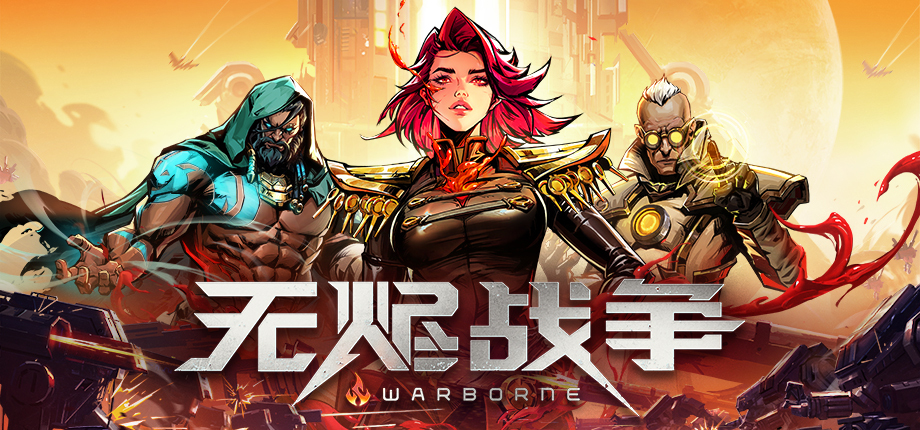
In previous overseas tests, "Ashes War" already had excellent data performance. The three rounds of tests have attracted players from 128 countries and regions around the world to participate, and have also won the top 10 free trial lists in the Steam New Product Festival, and won the double championships in the online competition and MMO categories.


This also proves one thing: "Ashes War" has enough player base, which is extremely important for MMO games. This is why these legendary guilds settled in "War of Embers".
So... Why is "Ashes War"?
You know, over the years, various MMO games can be said to be emerging one after another. There are old school schools that take classic paths, and new things that take trap paths. It can be said that a hundred schools of thought have contended - but why have these games not attracted so many players and guilds to pay attention?
The answer is actually very simple: "Ashes War" is focused enough.
As an MMO game, "Ashes War" chose to "lightly get on the battlefield" - abandoning the long cultivation line and daily tasks of traditional MMO games, without forced main plot, and directly taking fast-paced wild conflicts and distinctive competitive modes as the core gameplay. In addition, the cross-campus grand territorial battle based on guild battles will implement the logic of "once the land is in battle" to the end, allowing garbage time to say goodbye.
To be honest, "Ashes War" is indeed bold enough - if you look back at the development history of the above MMO game for more than 20 years, you will find that the core fun of most players is actually to quickly run through the main line and enter the current version of END GAME, then brush the dungeon to level your equipment, and finally start a happy PVP. It’s okay to fight the battlefield and siege the city. In short, you need PVP. "Ashes War" directly compresses the time of "preparing for battle" to nearly zero, and you can enter the battle within 30 minutes after creating the character - it is END GAME, which will start to play happily in one second, experience the core fun in one second, and realize the freedom of fighting. Isn't it perfect? At the same time, with the update of the game, new battlefields, new maps, new gameplay, and new opponents are constantly added, and the game experience will not fall into a repetitive stalemate.

And, "The War of Embers"� Players provide a dynamic battlefield that is open all-weather, from 1V1 to 100V100, all large-scale battles break out at any time in the map. You can hunt as a lone wolf, or you can carry out large-scale territorial competition with guild friends, and use various tactics and strategies at will, as long as you can win.

At this point, you may have to ask again: Then just create the character and start playing. What's the point? Then everyone is the same. What's the difference between whoever hits who?
Of course not. After abandoning the traditional MMO game development route, "Astrode War" also killed the professional system - you can choose the role you want to play among more than 40 drifters, and freely combine more than a hundred types of equipment, vehicles and tactical props to build your own Build. You no longer have to worry about meeting the "Shilipo Sword God" and let you go in seconds with one sword. All the winners and losses are only related to your operating methods and strategic ideas.
In "Ashes War", all players stand on the same starting line. The numerical crushing in the past "sand attack" process will never be seen again. All you need is techniques, experience and creativity - do you know there are four ways to write the word "death"? At the same time, after each war in "Ashes War", the map will be reset and everyone will return to the starting point. I didn’t match my own Build in the last game? I learned my lessons directly in this game and made a comeback.

"Ember War" also uses rendering technologies such as virtual terrain real-time texture to achieve 100v100 fierce battles on the same screen and remains smooth and does not stutter. Operation details and tactical execution are fully guaranteed, and we truly say goodbye to the previous slide-style team battle.
Before the birth of "Ashes", I never thought that MMO games could be made like this - extreme simplification, bringing the ultimate "combat pleasure" experience. It not only improved the numerical crushing problem of Korean MMO games, but also solved the problem of long-term development of most MMO games on the market, but also helped the "mid-life crisis" MMO games face the problem of fragmented game time - since the wave of the times is like this, I will ride on the wave.
How to say it, in this post-MMO era, "The War of Embers" is indeed unique to make such a change. It neither looks forward to it nor is it self-confidence, but instead looks for a way out in the narrow gap.
As a person who is afraid of change, I really admire someone who can make such a change - you see, changing the world is such a person.
I started to recall now
I typed these words on my new computer desk, recalling my MMO gaming career over the past twenty years.
The War of Embers is also recalling, but it is not overly immersed in the glossiness of the past. It just looked back and went on a whole new path. It pushed down the sculpture full of glory and rebuilded a fortress with new soil and broken pigments. It knows what dross is, and what is more in line with the essence of contemporary aesthetics - so it chooses to carry past memories, pick up the banner of hope, and then try to lead the arrival of a new era of MMO.
Will it succeed? I sincerely hope it will succeed - it ignited the heart of my old guy in my forties and the hearts of countless old MMO gamers.
I posted the public beta of "The War of Ember" on September 19 in many group chats. The deserted group chat became lively again as if it had discovered a new continent - warriors, priests, and commanders. Everyone was back, as if they were back more than ten years ago.
We are all back, with the expectation and desire to set foot on a new battlefield. And "Ashes War" is even moving forward with great strides.
